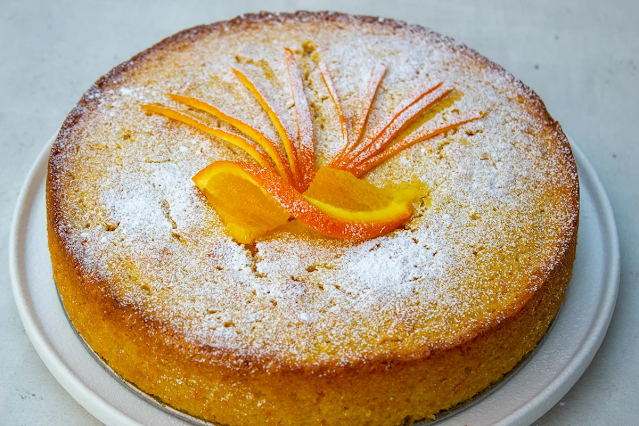Unlock the magic of precise birthday wishes with ML to mg conversions, ensuring the sweetest cakes every celebration deserves!
Birthdays are a time for celebration, and there's no better way to celebrate than with a delicious birthday cake. Whether it's a classic chocolate cake, a fruit-filled delight, or an extravagant multi-layer creation, the perfect birthday cake is the centerpiece of any birthday party. What many people may not realize is that creating these delectable treats often involves a little bit of science, particularly in the form of milliliters (ML) to milligrams (MG) conversions. In this article, we'll explore how ML to MG conversions play a crucial role in baking and how they help make the sweetest birthday cakes.
The Science of Baking: The Importance of Precision
Baking is a unique culinary art that relies heavily on precision. Unlike cooking, where you can often improvise and adjust ingredients to taste, baking demands accurate measurements and adherence to recipes. This precision is essential to ensure that your cakes, cookies, and pastries turn out as they should. ML to MG converters offered by various online platforms like mltomg.com come into play when dealing with ingredients like flour, sugar, butter, and other key components of cake recipes.
Flour Power: Converting Volume to Weight
Flour is the primary dry ingredient in most cake recipes. It's also one of the ingredients where the difference between volume (milliliters) and weight (milligrams) becomes evident. When you measure flour by volume (in milliliters), it can vary significantly depending on how compacted it is. To achieve consistent and reliable results in baking, it's crucial to convert flour measurements to weight (milligrams) using the specific conversion factor for the type of flour you're using.
For example, one cup of all-purpose flour weighs approximately 120 grams, which is equivalent to 120,000 milligrams. By converting from volume to weight, you can ensure that you're adding the correct amount of flour to your cake batter, leading to a light and fluffy texture.
Sugar, Sweet Sugar: A Balancing Act
Another critical ingredient in cake baking is sugar. While sugar measurements are more forgiving than flour, precision still matters. Sugar can be measured in both volume (milliliters) and weight (milligrams), depending on whether it's granulated, powdered, or brown sugar. It's essential to know the specific conversion factors for these sugar types.
Converting sugar measurements from milliliters to milligrams helps you achieve the desired level of sweetness in your cake while maintaining the proper texture and moisture content. For instance, one cup of granulated sugar is approximately 200 grams, equivalent to 200,000 milligrams. This precision ensures that your birthday cake will taste just right.
Butter's Role: Balancing Moisture and Fat Content
Butter is yet another ingredient where precision matters. When butter is measured in milliliters, it doesn't account for its fat content accurately. Converting butter measurements to milligrams helps you maintain the right fat-to-moisture ratio in your cake batter.
A standard stick of butter weighs approximately 113 grams or 113,000 milligrams. Knowing this conversion factor is essential for creating a perfectly moist and flavorful birthday cake. Too much or too little butter can significantly affect the cake's texture and taste.
The Quest for Consistency: Recipe Testing
Precision in measurements is essential not only for creating the cake but also for consistency. When you follow a tried-and-true recipe, you're relying on the precision of the measurements used by the recipe developer. A good recipe will often provide measurements in milliliters and milligrams for the key ingredients, ensuring that you achieve the desired results.
However, it's not uncommon for bakers to experiment with their recipes, either to cater to dietary restrictions or simply to add a personal touch. In such cases, understanding ML to MG conversions becomes even more critical. It allows you to adjust ingredients while maintaining the delicate balance of flavors and textures in your cakes.
Digital Kitchen Scales: Your Precise Baking Companion
One of the best tools you can have in your baking arsenal is a digital kitchen scale. These scales allow you to weigh your ingredients accurately in milligrams, eliminating the need for volume measurements. Using a scale simplifies the conversion process, as you can work directly with weight measurements, ensuring precision in your baking.
A digital kitchen scale is an excellent investment for both novice and experienced bakers, making it easier to achieve consistent and delicious results in your birthday cakes and other baked goods.
The Sweetest Birthday Wishes: A Cake Done Right
Conclusion
Birthday cakes are an integral part of birthday celebrations, and precision is key to creating the perfect cake. ML to MG conversions are not just scientific measurements; they are essential tools for achieving consistency, flavor, and texture in your cakes. By understanding the conversions for key ingredients like flour, sugar, and butter, you can ensure that your birthday wishes are as sweet as the cakes you create. So, the next time you're baking a birthday cake, remember the science behind the recipe and the role of ML to MG conversions in making it extra special. Happy baking!


















COMMENTS